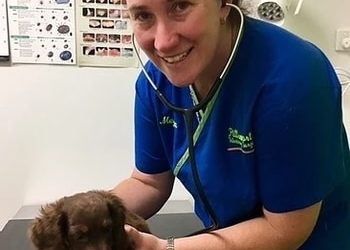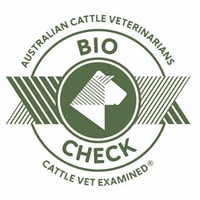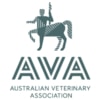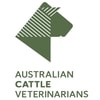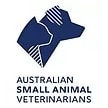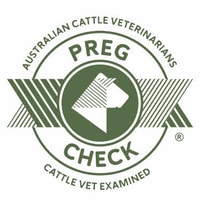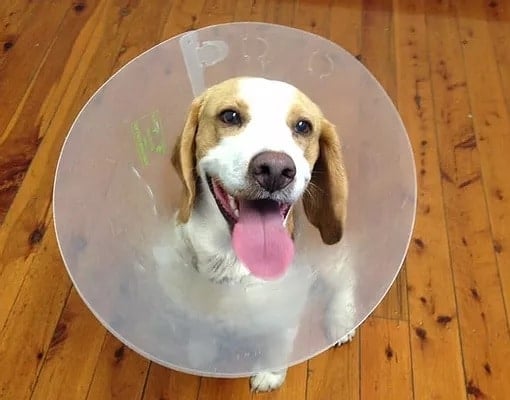
We all want to save money as much as possible and unfortunately veterinary care has a notorious stigma for being expensive because there is not the large government contribution with veterinary care like there is with human medical care (medicare).
Despite what you may believe, as vets we also want to save your money as much as possible whilst providing the best possible care needed for your pet. Therefore, we have a few helpful hints on how to save your dollar when it comes to your favourite pet.
Keep your vaccinations up to date
Keeping vaccinations annual ensures that we don’t see you here with a sick pet from a completely preventable disease. The most disastrous of these is Canine Parvovirus- this deadly virus causes severe vomiting and diarrhoea and without intensive treatments often can be fatal. It is highly unlikely that you will get your favourite mate back for less than $1000- imagine how many vaccinations this could cover!!!
Cats need their annual F3 to help protect them against diseases such as herpesvirus, calcivirus (cat flu) and panleucopaenia (cat parvovirus). Preventing these diseases reduces snotty nose, weeping eyes, ulcers and breathing issues as well as gastro issues with the panleucopaenia. FIV (Feline Immunodeficiency Virus- Feline Aids) is contracted by cats that fight. Preventing is far better as this can significantly reduce your cats lifespan by making their bodies unable to fight disease.
Watch what they eat
Diet related problems are very common in all veterinary practices. The biggest offenders are table treats- that cheeky bit of bacon trim is doing more harm than you know! Obesity, dental disease, pancreatitis, gastroenteritis, constipation are just a few of the things we see due to diet. We recommend that you feed quality balanced diets to your pets; a few of our favourites are ADVANCE, HILLS and ROYAL CANIN.
Know your bones
This stems from the last point. Dogs and cats love bones, and they can be really beneficial however know which bones are deadly. Never feed your pet cooked bones, anything with sharp edges or splintered, and anything that can be swallowed whole. The best bones are the big “dinosaur” bones- cow femurs, kangaroo legs that are NOT cut in half as this can cause the teeth to break. Also cutting bones in half exposes the marrow which is extremely fatty and can lead to acute bouts of some of these diseases listed above. Also brisket bones are quite good for young dogs and puppies as they contain more cartilage than other types which makes them softer and better for developing teeth. Cats love chicken necks.
Dental Disease
Dental disease is THE most common problem seen in veterinary practices. Approximately 85% of dogs and cats over 3 years of age have some form of dental disease- spanning from gingivitis, to severe periodontal disease. Therefore, it is important to know how to slow the progression of periodontal disease-> maximise your pets chewing- so more bones and dry biscuits, and less canned food and mince.
The gold standard of dental care is to brush your pets teeth- this is surprisingly easy and is said to remove 95% of plaque. However, make sure you use special pet toothpaste as human paste can be toxic. Getting regular dental cleaning will also minimise the risk of severe problems later on. Come and see us for a handout on brushing your dog/cats teeth.
Prevent fleas and worms: The right way!
Fleas cause or at least contribute to well over half the skin problems we see. Just because your animal doesn’t have fleas crawling all over them doesn’t mean that fleas aren’t hurting them. Proper protection relies on quality products given regularly- usually monthly to every 3 months. We recommend either tablet forms or spot-ons. Worms also need attention as they can cause underlying issues in the gut and can be irritative. Worming should be every 3 months ( puppies up to 12 weeks should have worming every 2 weeks and then monthly until 6 months of age).
Protect your cat
This sounds like a big jump to make, however, keeping cats indoors reduces the risk of them associating with other cats; feral and other domestic cats. Cats very commonly present from injuries due to fighting with other animals, and there are also several nasty diseases they can contract from these encounters such as Feline Immunodeficiency Virus (FIV, or “cat AIDS”). If it is something that you think is feasible then definitely give it a go- try locking your pet inside at afternoon feed time and then out again in the morning. There is also a vaccination for FIV so if your cat does ever get into a spot of bother with other cats then definitely consider this!
Don’t leave it until last minute
We all are aware of the idea that your pet “might get over it” which is fair enough, however if you have a sick pet we cannot stress enough how important prompt treatment is in the majority of cases. It is not uncommon for us to be presented with dogs and cats that were initially mild cases that could have been treated with minor medical therapy, however by the time they get to us they have decompensated and are quite ill.
The other problem we regularly see is the pet going downhill overnight resulting in an after hours call which will undoubtedly cost you more. At the very least we always recommend you give us a call when your pet first shows symptoms just to have a chat. We are always at the end of the phone.
Pet insurance
As vets we spend a lot of time balancing between looking after the owners hip pocket, but also trying to do the best thing by the patient- this can be very difficult at times however, when owners have insurance this makes it better all round; for owner, patient and vet. It means we can always do the best thing available; we can send more samples away for analysis, do more intricate surgeries, and refer to specialists more often. We cannot stress enough how much difference pet insurance makes to your pets veterinary care.
RELATED ARTICLES
Afterhours Triage Services
Dear Valued Clients Unfortunately, we have reached an unprecedented time of having only 2 full time veterinarians for the foreseeable future as we have Dr Jess Beare and Dr Charlie Sinclair are moving onto different life journeys. We will miss them greatly. At this...
Anaesthetics and Surgeries
It is quite common practice for patients to come in to have surgeries or procedures that require a general anaesthetic. What to expect for you and your pet? Generally surgeries are day procedures which means your pet needs to arrive between 8-8.30 a.m. that morning....
RELATED
ARTICLES
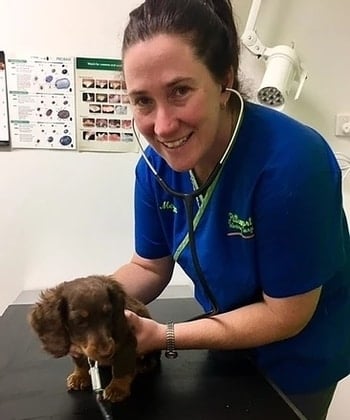
Afterhours Triage Services
Dear Valued Clients Unfortunately, we have reached an unprecedented time of having only 2 full time veterinarians for the foreseeable future as we have Dr Jess Beare and Dr Charlie Sinclair are moving onto different life journeys. We will miss them greatly. At this...
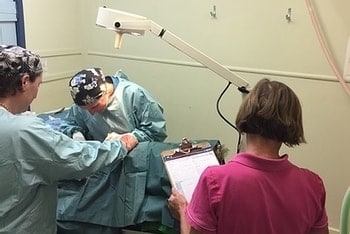
Anaesthetics and Surgeries
It is quite common practice for patients to come in to have surgeries or procedures that require a general anaesthetic. What to expect for you and your pet? Generally surgeries are day procedures which means your pet needs to arrive between 8-8.30 a.m. that morning....
Call Us Today To Discuss Your Animal Needs
Business Hours Phone: 07 4693 2233




